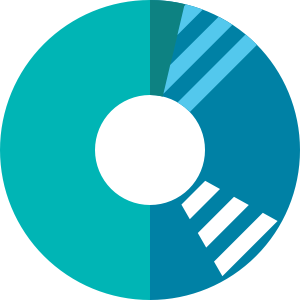23andMe has more than 14 million customers worldwide. Our Health + Ancestry and Membership services allows individuals to acquire this information from the privacy of their own homes, without medical requisition.
Nearly 30% of consumers who undergo direct-to-consumer (DTC) genetic testing choose to share their reports with healthcare providers to inform conversations about their health.1,2,3 Our Healthcare Professionals community was created to help U.S. providers and their patients navigate genetics together in order to make important informed decisions about prevention, treatment and healthy living.
Join our community to receive important updates about new features and information about upcoming educational programs and engagement opportunities.
The 23andMe Medical Professionals site is not intended for individuals in the EU.
At 23andMe, we believe that when consumers engage with their genetics, they are able to play a more active role in their health. We also believe the human genome holds the promise of contributing to major breakthroughs in medical research efforts. We go beyond genetic testing to engage consumers in research with the goal of accelerating therapeutic development. ~80% of our customers consent to participate in research, making 23andMe an important study partner in pioneering research.
The 23andMe Personal Genetic Service provides information and tools for individuals to learn about their DNA.

23andMe researchers and our collaborators make meaningful discoveries using genetic data and survey information.

23andMe Therapeutics strives to use human genetic data to accelerate the discovery of novel treatments.

10+ reports
 Familial Hypercholesterolemia
Familial Hypercholesterolemia Atrial Fibrillation
Atrial Fibrillation Coronary Artery Disease
Coronary Artery Disease High Blood Pressure
High Blood Pressure LDL Cholesterol
LDL Cholesterol Type 2 Diabetes
Type 2 Diabetes
5+ reports

45+ reports

50+ reports

5+ reports
What causes consumers to pursue DTC genetic testing? Motivations include obtaining health-related information, learning about genetic risk factors, curiosity in genetics, contributing to research and investigating self-identity.4
For individuals interested in genetic health information, it’s important to note that the 23andMe experience is not intended to be a diagnostic tool. Our objective is not to detect disease, but to deliver genetic information in the most engaging and responsible way. Our Health Predisposition (including Genetic Health Risk), Pharmacogenetics, and Carrier Status reports* may, in certain cases, provide valuable information for clinical management.
Explore our reports to better understand the types of information your patients receive and may share with you.
Questions? Contact us at medical@23andme.com.